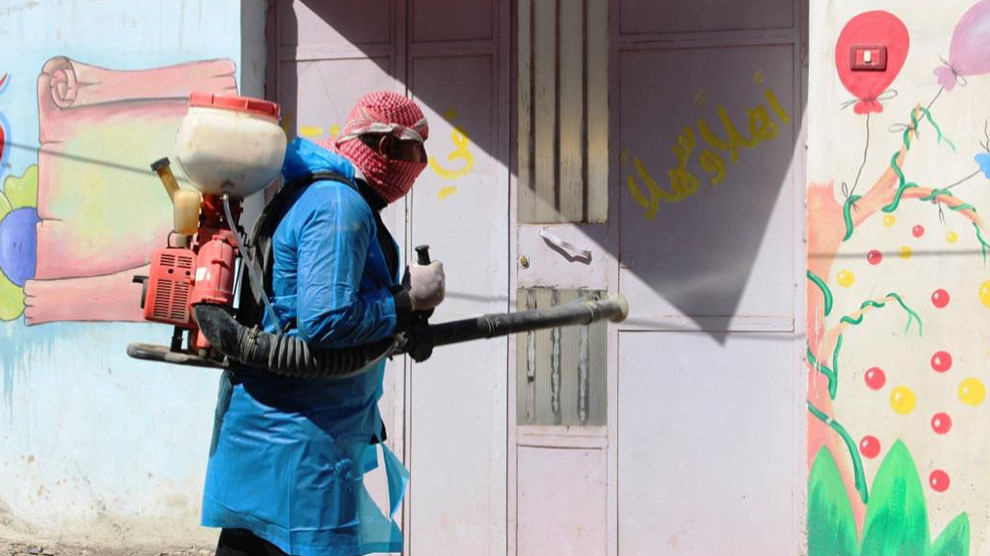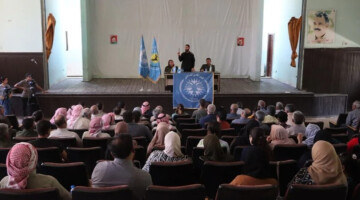North and East Syria has so far had the coronavirus pandemic well under control thanks to early contact restrictions. For months, the autonomous regions successfully sealed themselves off, largely closed borders and strict quarantine conditions kept the region away from the virus. But now the much-feared wave of infection seems to have reached north-east Syria.
Ciwan Mistefa, co-chair of the Health Committee of the Autonomous Administration of North and Est Syria, believes the Syrian government has a responsibility, saying: "The virus is introduced and spread by air travelers to Qamishlo. The airport there is under control of the regime. We have made considerable efforts to implement security concepts that could provide sufficient protection against the Covid-19 virus. However, the state airport operator has been stubborn and continues to show little concern for preventing the spread of the virus. Our investigations have shown that all the patients in whom we have detected the coronavirus in recent weeks have been infected in travelers living in the regime areas.”
The autonomous administration had already criticised in April that the airport in Qamishlo was a major weakness in the prevention measures against Coronavirus and accused Damascus of not contributing to the fight against the pandemic. At that time, even virus controls had been sabotaged by pandemic prevention teams of the self-government, and people entering Damascus had been literally kidnapped by airport employees so that they would not be taken into quarantine.
Currently, 30 cases of infection are assumed to exist in northern and eastern Syria (as of August 2). Most of the infected live in the Cizîrê region, but infections have also been detected in Raqqa and Deir ez-Zor. "The crucial thing now is to prevent the virus from spreading beyond the affected areas. However, we can only succeed in doing this by taking strict measures. As the health committee, we have therefore decided to reintroduce strict curfews throughout the Cizîrê region. We want to maintain the isolation strategy until no more local infections are detected," said Mistefa.
No support from WHO
The Autonomous Administration of North and East Syria does not expect support from the World Health Organization (WHO) in the fight against coronavirus. "After the Rojava revolution, hospitals in the region were equipped with medical equipment. But since the outbreak of the pandemic, no WHO aid has arrived in our regions," Mistefa criticises. There is no help from the Syrian government for the autonomous regions anyway, because the distribution of humanitarian aid is coordinated by the United Nations and the WHO via Damascus and the regime largely omits northern and eastern Syria. "The WHO should provide direct aid if it wants to support our population," Mistefa added.














